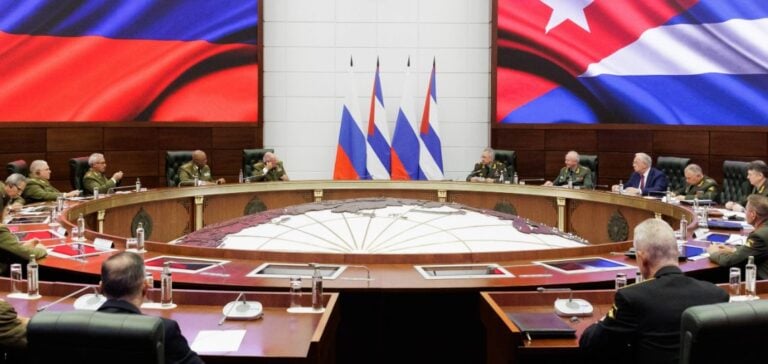The recent climate disasters in Cuba, marked by hurricanes Rafael and Oscar, have intensified an already concerning energy crisis on the island. To address the challenges, Russia has stepped up its support initiatives, evidenced by the recent visit of Russian Minister of Emergency Situations Alexander Kurenkov and other senior officials to Havana.
During his visit, Mr. Kurenkov met with officials from Cuba’s Ministry of the Interior and visited the Cuban Firefighters’ Special Rescue Unit, where he delivered donations to bolster local disaster response capabilities. These efforts highlight Moscow’s commitment to assisting Cuba during a critical period.
The support extends beyond immediate donations. Russia has granted a $60 million loan to purchase fuel, essential for addressing the island’s chronic shortages. Additionally, a $2 million donation has been announced to acquire parts and components needed to repair an electricity infrastructure strained by two major blackouts within a single month.
A Strategic Energy Cooperation
Alongside financial and material aid, Moscow and Havana are deepening their energy sector collaboration. The Cuban daily Granma reported the inauguration of a joint training center between the National Research University–Moscow Energy Institute and Cuba’s national electricity company, Union Electrica (UNE). This center aims to train highly skilled personnel to support long-term energy projects.
This initiative is part of a joint roadmap established in recent years. According to Argelio Jesus Abad, Cuban Deputy Minister of Energy and Mines, the collaboration aims to reduce Cuba’s reliance on imported fuels and mitigate the impact of the U.S. embargo in place since 1962.
An Unprecedented Energy Crisis
The impact of hurricanes Rafael and Oscar, categorized as Category 3 and Category 2 storms respectively, has severely strained the island’s already fragile energy infrastructure. Rafael, which struck the western part of the country in early November, left millions of Cubans without electricity for several days. These events compound the shortages of fuel, food, and medicine that have plunged Cuba into its worst economic crisis in three decades.
With an enduring U.S. blockade, Havana relies on its allies to weather this period of turmoil. The revival of Russo-Cuban cooperation may prove pivotal to the island’s resilience.






















